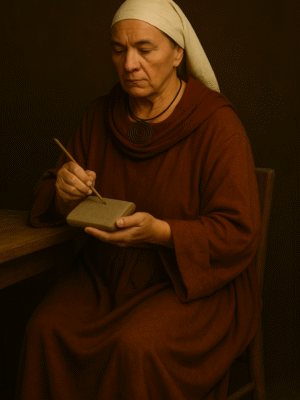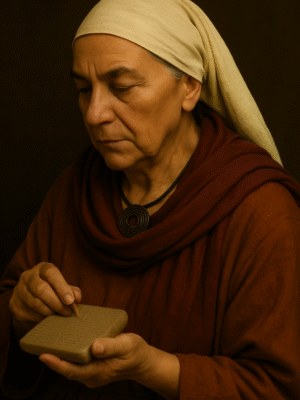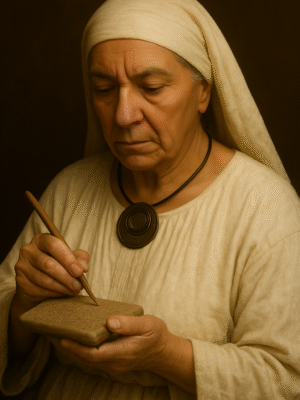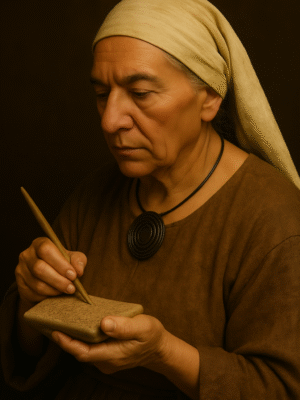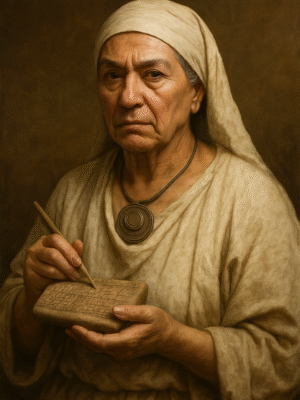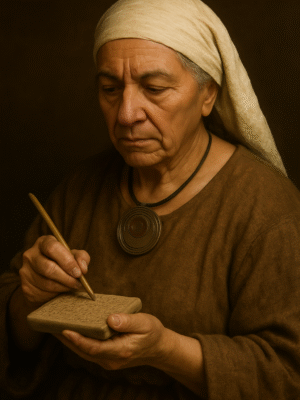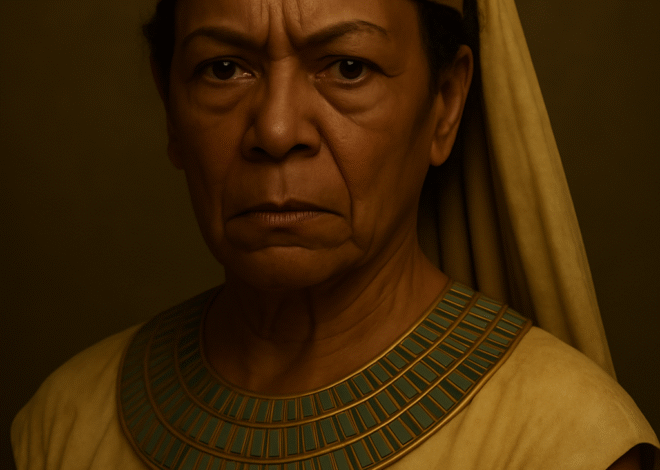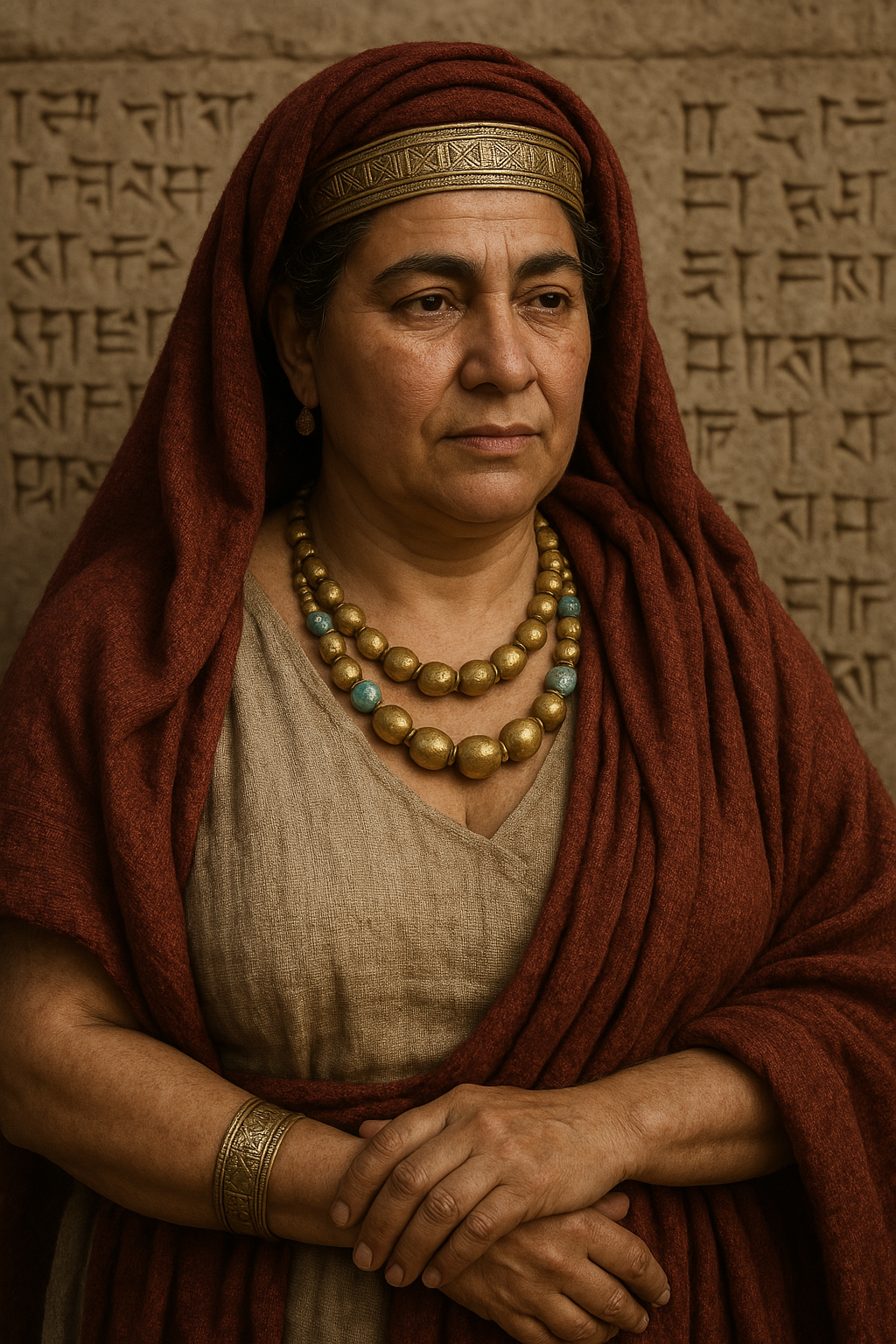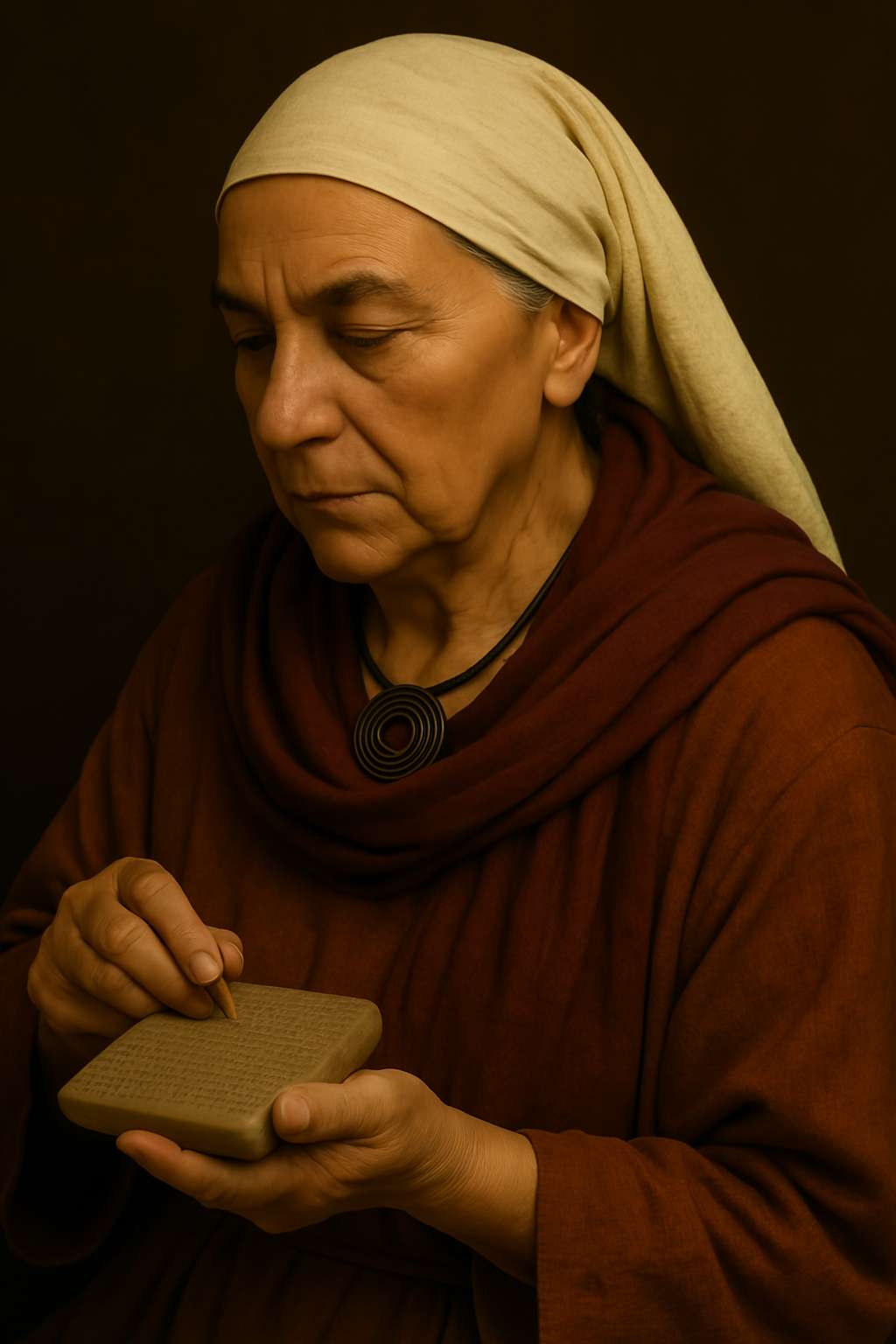
Enheduanna (2285 BC – 2250 BC)
Enheduanna (2285 BC – 2250 BC) Enheduanna was a Mesopotamian high priestess and one of the earliest known authors. She composed hymns in honor of the gods and played a key role in consolidating her father Sargon’s empire.
Enheduanna, the daughter of Sargon of Akkad, was a pioneering figure in ancient Mesopotamia, serving as the high priestess of the moon god Nanna in the city of Ur. She lived around 2300 BCE and is widely regarded as the world’s first known author. Her role was not merely religious; she was instrumental in merging the Akkadian and Sumerian religious traditions, strengthening her father’s empire by fostering unity among its diverse peoples. Through her hymns and poetry, she established a lasting legacy that influenced religious and literary traditions for centuries.
Her most famous work, The Exaltation of Inanna, is a deeply personal and devotional hymn dedicated to the goddess Inanna. In this composition, Enheduanna expresses her struggles, exile, and eventual restoration, intertwining her personal experiences with divine themes. Her writings were not just religious texts but also political tools, reinforcing the legitimacy of Akkadian rule by linking it to divine favor. She also composed the Sumerian Temple Hymns, a collection of hymns that praised various temples and deities, further cementing her influence in Mesopotamian religious practices.
Beyond her literary contributions, Enheduanna played a crucial role in maintaining stability within the Akkadian Empire. As high priestess, she wielded significant political power, overseeing religious ceremonies and ensuring the continued worship of the gods in a manner that aligned with imperial interests. Her position was not without challenges—she was temporarily exiled during a political upheaval but later reinstated, an event she vividly describes in her poetry. Her resilience and ability to navigate the complexities of politics and religion highlight her exceptional leadership.
Enheduanna’s influence extended far beyond her lifetime. Her works set a precedent for later religious and literary traditions, shaping the development of hymns, prayers, and poetry in Mesopotamia and beyond. Some scholars even suggest that her compositions influenced later texts, including biblical psalms and Homeric hymns. Her ability to blend personal narrative with religious devotion made her writings uniquely powerful, ensuring their preservation and continued study by historians and literary scholars.
Today, Enheduanna is celebrated as a foundational figure in literature and history. Her rediscovery in the 20th century, particularly through archaeological findings such as an inscribed alabaster disk bearing her name, has reignited interest in her contributions. She stands as a testament to the enduring power of literature and the role of women in shaping early civilizations. Her hymns, filled with emotion and devotion, continue to inspire and provide insight into the spiritual and political landscape of ancient Mesopotamia.

